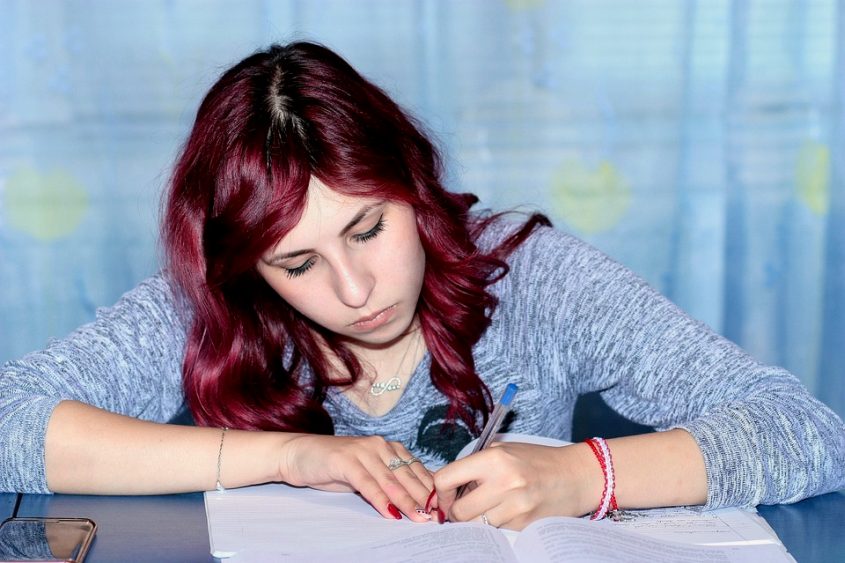
In 2008, I wrote the post How to study for tests, which contained important tips and advice on preparing and taking exams at school. That post covered 11 tips:
- Consider tests as fun
- Have a good sleep
- Highlight the important stuff
- Do your homework
- Find someone to study with
- Manage your time wisely (be more effective)
- Prepare Revision cards
- Use Test Trees (Mind Maps)
- Talk to yourself
- Go over the test before starting
- Check before submitting
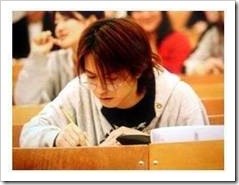 Since then, I have had a chance to talk to many teachers about tip number 3 – highlight the important things – and I want to give some ideas on how to get the teacher to help you (your kids) do that.
Since then, I have had a chance to talk to many teachers about tip number 3 – highlight the important things – and I want to give some ideas on how to get the teacher to help you (your kids) do that.
Generally speaking, teachers really want their students to succeed. I know there are still teachers out there who consider teaching as some form of competition with their students, but they are the minority and we do not want to give them a stage here, so let’s just ignore them. I still believe teachers want their students to succeed, because after all, students’ success is proof the teacher has done a good job.
Most teachers do a lot to make it happen. For example, they give students many clues during classes to help them succeed. Today’s post is about those clues that the teachers are giving to support their students’ learning and help them do better on their exams. I believe it is very important to teach kids to notice when a clue is given to him.
Teaching is not about what we give our students but about what they choose to take. We spend too much time on giving our students and too little on teaching them to take
Ronit Baras
There are two sides to this clue-giving transaction:
- Teacher gives the clue
- Student receives the clue
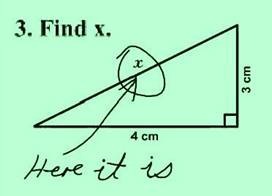 I believe that teachers need to give students clear instructions about what to focus on. In the first lesson of any course at any university, the lecturer gives you the assessment plan with all the things you are going to be tested on. I had inspiring mentors who told me to give my students the exam sheet in the first lesson of a subject and tell them, “These are the things I am going to ask you about”, or to give them 4 exam sheets and say, “I am going to pick questions from these 4 sheets”. This guarantees higher results.
I believe that teachers need to give students clear instructions about what to focus on. In the first lesson of any course at any university, the lecturer gives you the assessment plan with all the things you are going to be tested on. I had inspiring mentors who told me to give my students the exam sheet in the first lesson of a subject and tell them, “These are the things I am going to ask you about”, or to give them 4 exam sheets and say, “I am going to pick questions from these 4 sheets”. This guarantees higher results.
Unfortunately, many teachers say to me, “You’re simply giving them the answers, not making sure they have learned anything”.
But I am giving the kids the form or type of answer, so they can calibrate their learning and aim it better at what is expected of them at the end. During the course itself, I do not give them the answers. I teach them where to find the answers and how to get to the answers.
The good news is that although many teachers do not like the idea of telling kids clearly what to focus on, they all give clues in class and those are wasted if we do not teach our kids to notice them and use them to improve their learning.
Teaching kids to notice the clues is very easy. You tell them that a class is like a challenging puzzle and they must solve the puzzle during exams. The challenge during the whole term is to find the pieces needed for the exam. Every test question is a piece of the puzzle. We need kids to listen carefully to the teachers, because they give clues about the pieces.
Here is how to find possible clues.
Homework
Teachers give students the important things as homework. If you want to know what will be in the exam, check your homework. As a rule of thumb, teachers take most of the questions from the homework they give during the term.
If you have done your homework during the year and done it well, you will do brilliantly in your exams.
Check homework
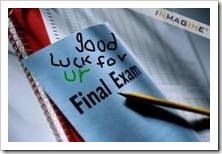 Teachers check the homework on the important things more than the other assignments they give. It is not easy for teachers to check all the homework they have given to their students (they have a life, after all), but if this is an important thing and they want the students to know it well, they will make sure to check the homework.
Teachers check the homework on the important things more than the other assignments they give. It is not easy for teachers to check all the homework they have given to their students (they have a life, after all), but if this is an important thing and they want the students to know it well, they will make sure to check the homework.
If the teacher has taken your homework or revision sheet for checking and grading, it usually means it contains something that will be in the exam.
Repetition
Teachers repeat topics that are important and are going to be in the exams more than once.
If you want to know what will be tested, find out which topics have been repeated. It usually means the teacher wanted to give you another chance to learn about it and help you succeed come exam time.
Plenty of examples
Teachers give more examples for things they want the students to remember.
If you want to know what will be tested, discover the subjects for which you have the most examples. They will probably pick one of the examples to ask about. For the same reason they repeat, they do it to give you another chance to memorize exam material.
Revision sheets
Teachers use revision sheets for all the topics they want to test. Do not underestimate them. If there is some kind of a revision sheet, print it or start working on it as soon as you get it.
There is a 100% chance that the questions on the exam will be identical or very similar to those on the revision sheet. Test yourself with a timer and you will be able to predict your success on the exam.
Assessments
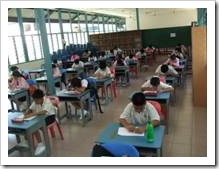 Through assessments, teachers discover the topics the students do not do well and teach those topics for the following one.
Through assessments, teachers discover the topics the students do not do well and teach those topics for the following one.
Make sure you are there on the day they give back exams and listen carefully to what the teacher is focusing on in his or her feedback. Every topic covered again will be on the next exam.
Extra stickers/points
Another way for you to know how the teacher will evaluate you is to discover his or her reward system. Teachers give extra stickers/points for things they value. For example, if you have been given extra points for your presentation of the project, you can tell that presentation is very important to that teacher.
If the teacher has given you extra points for your “working out” (most of them do), it means that when you sit for your math exam, you need to write how you have worked out your answer to get a full score.
“This will be on your exam”
It is funny, but some teachers actually say it. They teach something and say, “Pay attention to this, because it will be on your exam”. I personally think this is a great idea. No need for clues – just tell them what to focus on.
My daughter Eden is studying Psychology at the university. When he wants them to pay attention to something, one of her professors says, “This is a very important topic” and winks. All the smart kids (those who have been taught to find their teachers’ clues) mark in their notebooks that this topic will be on the exam and pass big time.
You see, it is easy. The clues are there, we just need to tell our kids to notice them and they will never need “luck” again.
Happy parenting,
Ronit
This post is part of the series How to Study For Tests:
- How to Study For Tests: The Basics
- How to Study for Tests: Teachers’ Clues











